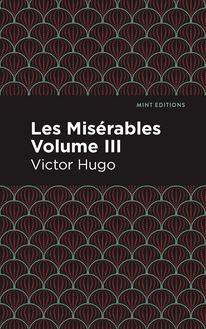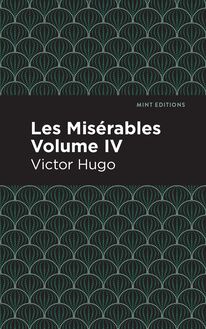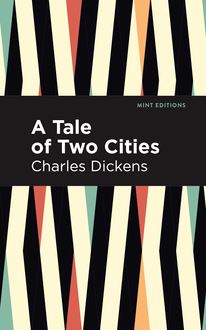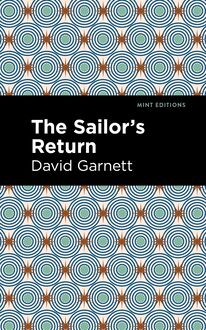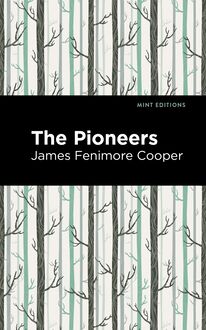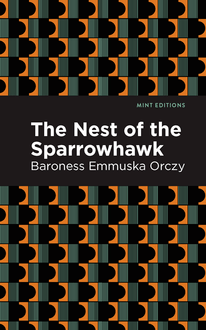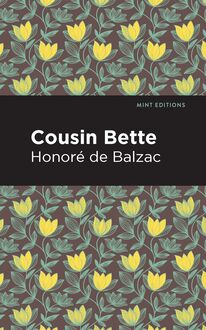-
 Univers
Univers
-
 Ebooks
Ebooks
-
 Livres audio
Livres audio
-
 Presse
Presse
-
 Podcasts
Podcasts
-
 BD
BD
-
 Documents
Documents
-
- Cours
- Révisions
- Ressources pédagogiques
- Sciences de l’éducation
- Manuels scolaires
- Langues
- Travaux de classe
- Annales de BEP
- Etudes supérieures
- Maternelle et primaire
- Fiches de lecture
- Orientation scolaire
- Méthodologie
- Corrigés de devoir
- Annales d’examens et concours
- Annales du bac
- Annales du brevet
- Rapports de stage
La lecture à portée de main
Vous pourrez modifier la taille du texte de cet ouvrage
Découvre YouScribe en t'inscrivant gratuitement
Je m'inscrisDécouvre YouScribe en t'inscrivant gratuitement
Je m'inscrisEn savoir plus
Vous pourrez modifier la taille du texte de cet ouvrage
En savoir plus

Description
Robert Dudley, the first Earl of Leicester, is happy with his wife, Amy Robsart, but will not let her tell anyone that they are married. Even though they both love each other, Robert values power and popularity much more than he values his wife. After secluding Amy in a house called Cumnor Hall with the help of his henchman, Varney, Robert entertains the idea of marrying Queen Elizabeth I. Fueled by desire for the power of the throne, Robert hides his wife and tries to seduce the queen, who had already taken a liking to the man. When Amy encounters an ex-lover, Tressilian, he tells her of Robert’s plan. At first unwilling to believe her husband could be so deceitful, Amy refuses Tressilian’s offer to take her away from Cumnor Hall. Overcome with compassion for Amy, Tressilian seeks out her father for help, hoping to help her get away from Robert and foil his plan. However, tensions rise at Kenilworth castle during the queen’s reception when Amy attempts to escape Cumnor Hall to warn Queen Elizabeth and tell her the truth about Robert. Featuring sensual politics, plot twists, and murder, Sir Walter Scott’s Kenilworth is a memorizing tale of love and deception. Written with vivid descriptions and beautiful prose, Kenilworth is part of Sir Walter Scott’s beloved Waverley series. With themes of selfishness, love, and ambition, Kenilworth is relatable and emotional. Through the depiction of prominent historical figures and landmarks, Sir Walter Scott shares rich English history with modern audiences. Kenilworth has inspired both plays and novels, and has been adapted for theater and television. This edition of Kenilworth by Sir Walter Scott now features a new, eye-catching cover design and is printed in a font that is both modern and readable. With these accommodations, this edition of Kenilworth crafts an accessible and pleasant reading experience for modern audiences while restoring the original mastery and drama of Sir Walter Scott’s literature.
Sujets
Informations
| Publié par | Mint Editions |
| Date de parution | 14 mai 2021 |
| Nombre de lectures | 0 |
| EAN13 | 9781513285443 |
| Langue | English |
| Poids de l'ouvrage | 3 Mo |
Informations légales : prix de location à la page 0,0500€. Cette information est donnée uniquement à titre indicatif conformément à la législation en vigueur.
Extrait
Kenilworth
Sir Walter Scott
Kenilworth was first published in 1821.
This edition published by Mint Editions 2021.
ISBN 9781513280424 | E-ISBN 9781513285443
Published by Mint Editions®
minteditionbooks.com
Publishing Director: Jennifer Newens
Design & Production: Rachel Lopez Metzger
Project Manager: Micaela Clark
Typesetting: Westchester Publishing Services
C ONTENTS I II III IV V VI VII VIII IX X XI XII XIII XIV XV XVI XVII XVIII XIX XX XXI XXII XXIII XXIV XXV XXVI XXVII XXVIII XXIX XXX XXXI XXXII XXXIII XXXIV XXXV XXXVI XXXVII XXXVIII XXXIX XL XLI N OTES
I
I am an innkeeper, and know my grounds,
And study them; Brain o’ man, I study them.
I must have jovial guests to drive my ploughs,
And whistling boys to bring my harvests home,
Or I shall hear no flails thwack.
— T HE N EW I NN
I t is the privilege of tale-tellers to open their story in an inn, the free rendezvous of all travellers, and where the humour of each displays itself without ceremony or restraint. This is specially suitable when the scene is laid during the old days of merry England, when the guests were in some sort not merely the inmates, but the messmates and temporary companions of mine Host, who was usually a personage of privileged freedom, comely presence, and good-humour. Patronized by him the characters of the company were placed in ready contrast; and they seldom failed, during the emptying of a six-hooped pot, to throw off reserve, and present themselves to each other, and to their landlord, with the freedom of old acquaintance.
The village of Cumnor, within three or four miles of Oxford, boasted, during the eighteenth of Queen Elizabeth, an excellent inn of the old stamp, conducted, or rather ruled, by Giles Gosling, a man of a goodly person, and of somewhat round belly; fifty years of age and upwards, moderate in his reckonings, prompt in his payments, having a cellar of sound liquor, a ready wit, and a pretty daughter. Since the days of old Harry Baillie of the Tabard in Southwark, no one had excelled Giles Gosling in the power of pleasing his guests of every description; and so great was his fame, that to have been in Cumnor without wetting a cup at the bonny Black Bear, would have been to avouch one’s-self utterly indifferent to reputation as a traveller. A country fellow might as well return from London without looking in the face of majesty. The men of Cumnor were proud of their Host, and their Host was proud of his house, his liquor, his daughter, and himself.
It was in the courtyard of the inn which called this honest fellow landlord, that a traveller alighted in the close of the evening, gave his horse, which seemed to have made a long journey, to the hostler, and made some inquiry, which produced the following dialogue betwixt the myrmidons of the bonny Black Bear.
“What, ho! John Tapster.”
“At hand, Will Hostler,” replied the man of the spigot, showing himself in his costume of loose jacket, linen breeches, and green apron, half within and half without a door, which appeared to descend to an outer cellar.
“Here is a gentleman asks if you draw good ale,” continued the hostler.
“Beshrew my heart else,” answered the tapster, “since there are but four miles betwixt us and Oxford. Marry, if my ale did not convince the heads of the scholars, they would soon convince my pate with the pewter flagon.”
“Call you that Oxford logic?” said the stranger, who had now quitted the rein of his horse, and was advancing towards the inn-door, when he was encountered by the goodly form of Giles Gosling himself.
“Is it logic you talk of, Sir Guest?” said the host; “why, then, have at you with a downright consequence—
‘The horse to the rack,
And to fire with the sack.’ ”
“Amen! with all my heart, my good host,” said the stranger; “let it be a quart of your best Canaries, and give me your good help to drink it.”
“Nay, you are but in your accidence yet, Sir Traveller, if you call on your host for help for such a sipping matter as a quart of sack; Were it a gallon, you might lack some neighbouring aid at my hand, and yet call yourself a toper.”
“Fear me not.” said the guest, “I will do my devoir as becomes a man who finds himself within five miles of Oxford; for I am not come from the field of Mars to discredit myself amongst the followers of Minerva.”
As he spoke thus, the landlord, with much semblance of hearty welcome, ushered his guest into a large, low chamber, where several persons were seated together in different parties—some drinking, some playing at cards, some conversing, and some, whose business called them to be early risers on the morrow, concluding their evening meal, and conferring with the chamberlain about their night’s quarters.
The entrance of a stranger procured him that general and careless sort of attention which is usually paid on such occasions, from which the following results were deduced:—The guest was one of those who, with a well-made person, and features not in themselves unpleasing, are nevertheless so far from handsome that, whether from the expression of their features, or the tone of their voice, or from their gait and manner, there arises, on the whole, a disinclination to their society. The stranger’s address was bold, without being frank, and seemed eagerly and hastily to claim for him a degree of attention and deference which he feared would be refused, if not instantly vindicated as his right. His attire was a riding-cloak, which, when open, displayed a handsome jerkin overlaid with lace, and belted with a buff girdle, which sustained a broadsword and a pair of pistols.
“You ride well provided, sir,” said the host, looking at the weapons as he placed on the table the mulled sack which the traveller had ordered.
“Yes, mine host; I have found the use on’t in dangerous times, and I do not, like your modern grandees, turn off my followers the instant they are useless.”
“Ay, sir?” said Giles Gosling; “then you are from the Low Countries, the land of pike and caliver?”
“I have been high and low, my friend, broad and wide, far and near. But here is to thee in a cup of thy sack; fill thyself another to pledge me, and, if it is less than superlative, e’en drink as you have brewed.”
“Less than superlative?” said Giles Gosling, drinking off the cup, and smacking his lips with an air of ineffable relish,—“I know nothing of superlative, nor is there such a wine at the Three Cranes, in the Vintry, to my knowledge; but if you find better sack than that in the Sheres, or in the Canaries either, I would I may never touch either pot or penny more. Why, hold it up betwixt you and the light, you shall see the little motes dance in the golden liquor like dust in the sunbeam. But I would rather draw wine for ten clowns than one traveller.—I trust your honour likes the wine?”
“It is neat and comfortable, mine host; but to know good liquor, you should drink where the vine grows. Trust me, your Spaniard is too wise a man to send you the very soul of the grape. Why, this now, which you account so choice, were counted but as a cup of bastard at the Groyne, or at Port St. Mary’s. You should travel, mine host, if you would be deep in the mysteries of the butt and pottle-pot.”
“In troth, Signior Guest,” said Giles Gosling, “if I were to travel only that I might be discontented with that which I can get at home, methinks I should go but on a fool’s errand. Besides, I warrant you, there is many a fool can turn his nose up at good drink without ever having been out of the smoke of Old England; and so ever gramercy mine own fireside.”
“This is but a mean mind of yours, mine host,” said the stranger; “I warrant me, all your town’s folk do not think so basely. You have gallants among you, I dare undertake, that have made the Virginia voyage, or taken a turn in the Low Countries at least. Come, cudgel your memory. Have you no friends in foreign parts that you would gladly have tidings of?”
“Troth, sir, not I,” answered the host, “since ranting Robin of Drysandford was shot at the siege of the Brill. The devil take the caliver that fired the ball, for a blither lad never filled a cup at midnight! But he is dead and gone, and I know not a soldier, or a traveller, who is a soldier’s mate, that I would give a peeled codling for.”
“By the Mass, that is strange. What! so many of our brave English hearts are abroad, and you, who seem to be a man of mark, have no friend, no kinsman among them?”
“Nay, if you speak of kinsmen,” answered Gosling, “I have one wild slip of a kinsman, who left us in the last year of Queen Mary; but he is better lost than found.”
“Do not say so, friend, unless you have heard ill of him lately. Many a wild colt has turned out a noble steed.—His name, I pray you?”
“Michael Lambourne,” answered the landlord of the Black Bear; “a son of my sister’s—there is little pleasure in recollecting either the name or the connection.”
“Michael Lambourne!” said the stranger, as if endeavouring to recollect himself—“what, no relation to Michael Lambourne, the gallant cavalier who behaved so bravely at the siege of Venlo that Grave Maurice thanked him at the head of the army? Men said he was an English cavalier, and of no high extraction.”
“It could scarcely be my nephew,” said Giles Gosling, “for he had not the courage of a hen-partridge for aught but mischief.”
“Oh, many a man finds courage in the wars,” replied the stranger.
“It may be,” said the landlord; “but I would have thought our Mike more likely to lose the little he had.”
“The Michael Lambourne whom I knew,” continued the traveller, “was a likely fellow—went always gay and well attired, and had a hawk’s eye after a pretty wench.”
“Our Michael,” replied the host, “had the look of a dog with a bottle at its tail, and wore a coat, every rag of which was bidding good-day to the rest.”
“Oh, men pick up good apparel in the wars,” replied the guest.
“Our Mike,” answered the landlord, “was more like to pick it u
-
 Univers
Univers
-
 Ebooks
Ebooks
-
 Livres audio
Livres audio
-
 Presse
Presse
-
 Podcasts
Podcasts
-
 BD
BD
-
 Documents
Documents
-
Jeunesse
-
Littérature
-
Ressources professionnelles
-
Santé et bien-être
-
Savoirs
-
Education
-
Loisirs et hobbies
-
Art, musique et cinéma
-
Actualité et débat de société
-
Jeunesse
-
Littérature
-
Ressources professionnelles
-
Santé et bien-être
-
Savoirs
-
Education
-
Loisirs et hobbies
-
Art, musique et cinéma
-
Actualité et débat de société
-
Actualités
-
Lifestyle
-
Presse jeunesse
-
Presse professionnelle
-
Pratique
-
Presse sportive
-
Presse internationale
-
Culture & Médias
-
Action et Aventures
-
Science-fiction et Fantasy
-
Société
-
Jeunesse
-
Littérature
-
Ressources professionnelles
-
Santé et bien-être
-
Savoirs
-
Education
-
Loisirs et hobbies
-
Art, musique et cinéma
-
Actualité et débat de société
- Cours
- Révisions
- Ressources pédagogiques
- Sciences de l’éducation
- Manuels scolaires
- Langues
- Travaux de classe
- Annales de BEP
- Etudes supérieures
- Maternelle et primaire
- Fiches de lecture
- Orientation scolaire
- Méthodologie
- Corrigés de devoir
- Annales d’examens et concours
- Annales du bac
- Annales du brevet
- Rapports de stage


